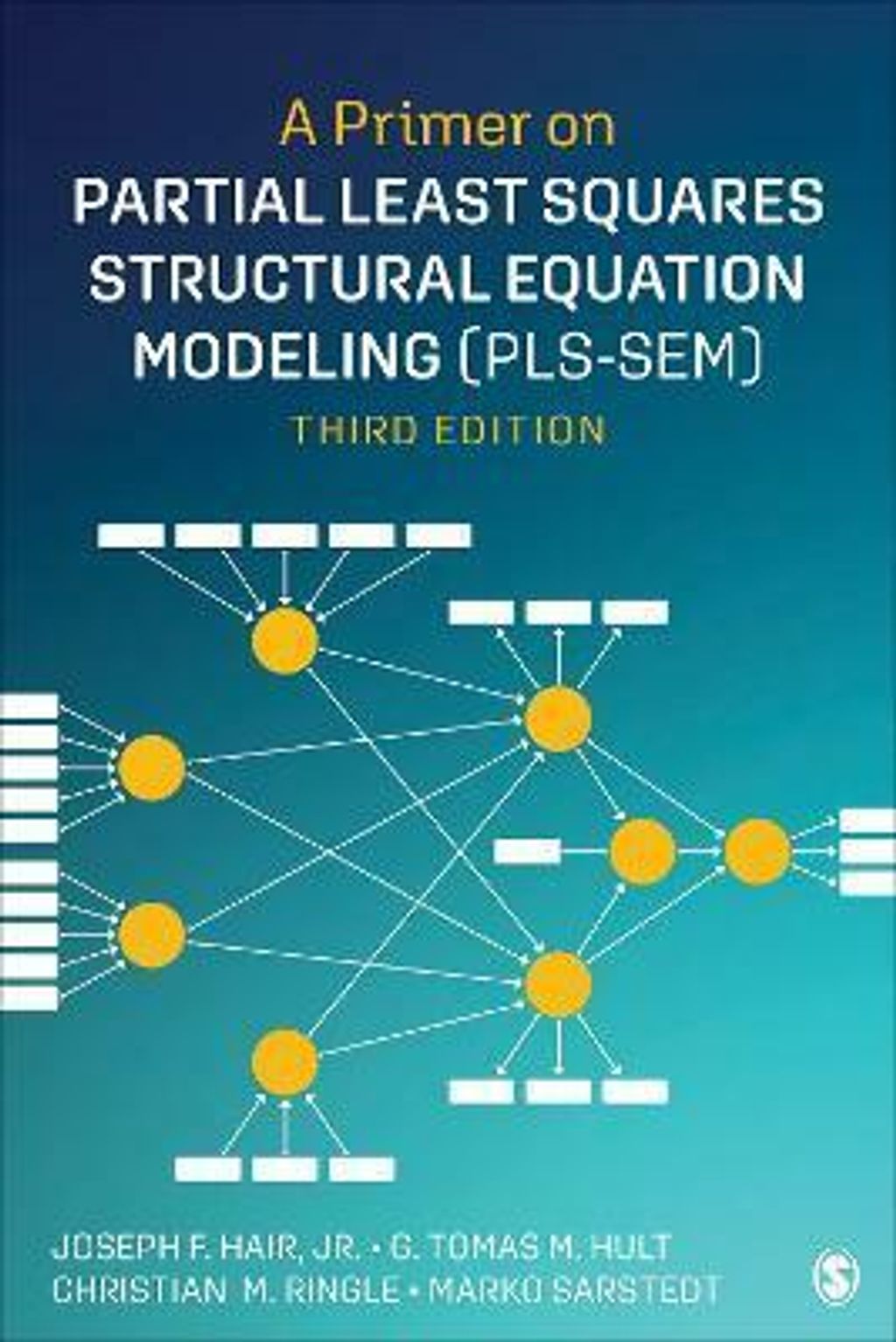
A Primer on Partial Least Squares Structural Equation Modeling (PLS-SEM) Joseph Hair Jr. 3E 9781544396408
RM 150.00
TITLE : A Primer on Partial Least Squares Structural Equation Modeling (PLS-SEM) Joseph Hair Jr. / Tomas M Hult / Christian Ringle / Marko Sarstedt
ISBN13 : 9781544396408
PUBLISHER : SAGE PUBLICATION (2021)
EDITION : 3rd PAPERBACK
PAGES : 363 PAGES
The Third Edition of A Primer on Partial Least Squares Structural Equation Modeling (PLS-SEM) guides readers through learning and mastering the techniques of this approach. The authors use their teaching experience to communicate the fundamentals of PLS-SEM with limited emphasis on equations and and symbols, relying on straightforward language instead.
Table of contents
Chapter 1. An Introduction to Structural Equation Modeling
What Is Structural Equation Modeling?
Considerations in Using Structural Equation Modeling
Principles of Structural Equation Modeling
PLS-SEM, CB-SEM, and Regressions Based on Sum Scores
Considerations When Applying PLS-SEM
Guidelines for Choosing Between PLS-SEM and CB-SEM
Organization of Remaining Chapters
What Is Structural Equation Modeling?
Considerations in Using Structural Equation Modeling
Principles of Structural Equation Modeling
PLS-SEM, CB-SEM, and Regressions Based on Sum Scores
Considerations When Applying PLS-SEM
Guidelines for Choosing Between PLS-SEM and CB-SEM
Organization of Remaining Chapters
Chapter 2. Specifying the Path Model and Examining Data
Stage 1: Specifying the Structural Model
Stage 2: Specifying the Measurement Models
Stage 3: Data Collection and Examination
Case Study Illustration-Specifying the PLS-SEM Model
Chapter 3. Path Model Estimation
Stage 4: Model Estimation and the PLS-SEM Algorithm
Case Study Illustration-PLS Path Model Estimation (Stage 4)
Chapter 4. Assessing PLS-SEM Results-Part I: Evaluation of the Reflective Measurement Models
Overview of Stage 5: Evaluation of Measurement Models
Stage 5a: Assessing Results of Reflective Measurement Models
Case Study Illustration-Evaluation of the Reflective Measurement Models (Stage 5a)
Chapter 5. Assessing PLS-SEM Results-Part II: Evaluation of the Formative Measurement Models
Stage 5b: Assessing Results of Formative Measurement Models
Case Study Illustration-Evaluation of the Formative Measurement Models (Stage 5b)
Chapter 6. Assessing PLS-SEM Results-Part III: Evaluation of the Structural Model
Stage 6: Structural Model Results Evaluation
Case Study Illustration-Evaluation of the Structural Model (Stage 6)
Chapter 7. Mediator and Moderator Analysis
Mediation
Moderation
Case Study Illustration-Moderation
Chapter 8. Outlook on Advanced Methods
Importance-Performance Map Analysis
Necessary Condition Analysis
Higher-Order Constructs
Confirmatory Tetrad Analysis
Examining Endogeneity
Treating Observed and Unobserved Heterogeneity
Measurement Model Invariance
Consistent PLS-SEM
Glossary
References
Index
×
×
![ES EXTENSTION TRADING www.1tobuy.com [1TO BUY]](https://cdn.store-assets.com/s/406307/f/7859603.png?width=350)